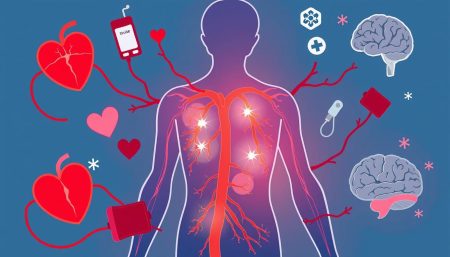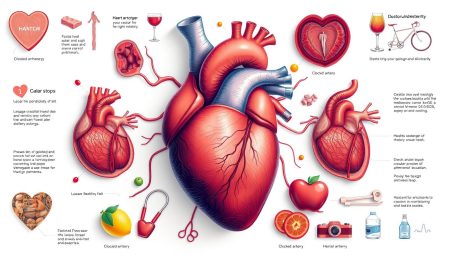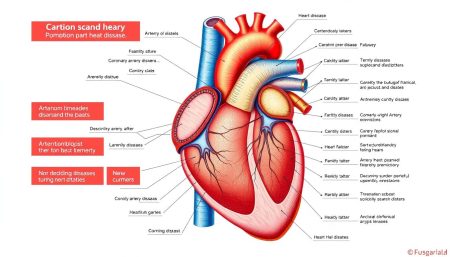Cardiovascular disease is a big health problem around the world. Knowing what causes it is key to preventing and treating it. Many things, like lifestyle choices and genetics, play a role in heart disease risk.
Keeping your heart healthy isn’t just about eating right or exercising. It’s about the mix of your genes, environment, and habits. By understanding these, we can take steps to protect our hearts and stay healthy.
In this detailed guide, we’ll look at the main reasons for cardiovascular disease. We’ll talk about how genetics, blood pressure, cholesterol, and lifestyle affect heart health. With this info, you can make smarter choices for your heart health.
Understanding Cardiovascular Disease and Its Impact on Health
Cardiovascular disease includes many heart and blood vessel problems. At its heart is atherosclerosis, where arteries narrow due to plaque. This silent killer affects millions worldwide each year.
Defining Cardiovascular Disease
Cardiovascular disease affects the heart and blood vessels. It includes coronary artery disease, heart failure, and stroke. Atherosclerosis is a key factor in many of these, restricting blood flow to vital organs.
Global Statistics and Mortality Rates
The global burden of cardiovascular disease is huge. Recent data shows alarming trends in mortality and prevalence worldwide.
| Region | CVD Deaths (% of total deaths) | Prevalence Rate (%) |
|---|---|---|
| North America | 31 | 9.2 |
| Europe | 45 | 6.9 |
| Asia | 35 | 5.8 |
| Africa | 13 | 4.5 |
Economic Burden of Heart Disease
The impact of heart disease goes beyond health, causing a big economic burden. Healthcare costs, lost productivity, and reduced quality of life add to this financial strain. In the United States, the annual cost of cardiovascular disease is in the hundreds of billions of dollars.
“The economic toll of cardiovascular disease is as devastating as its physical impact, affecting individuals, families, and entire healthcare systems.”
It’s key to understand cardiovascular disease to develop effective prevention strategies. By tackling risk factors and promoting heart-healthy lifestyles, we can lessen its burden.
What Causes Cardiovascular Disease: A Comprehensive Overview
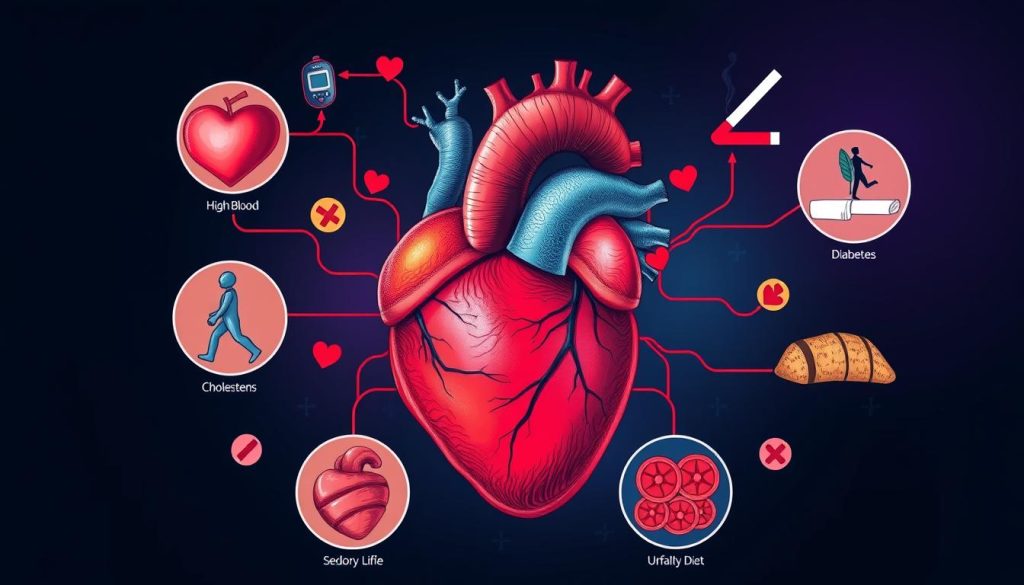
Cardiovascular disease is a major cause of death around the world. It comes from many factors working together. Knowing these heart disease risk factors is key to preventing and managing it. Let’s look at the main reasons behind this widespread health problem.
Lifestyle choices greatly affect cardiovascular disease. Smoking, eating poorly, and not exercising can harm blood vessels. This increases the risk of heart problems. These are things people can change to improve their heart health.
Genetics also play a part in heart disease. Family history can make some people more likely to get certain heart conditions. Regular health checks are important for those with a family history.
- High blood pressure
- Elevated cholesterol levels
- Diabetes
- Obesity
These conditions often go together, making heart problems more likely. Managing these factors is essential to lower the risk of cardiovascular disease.
Environmental factors, like air pollution and stress, also affect heart health. While harder to control, knowing about these can help people make better choices about their living and work environments.
“Prevention is better than cure. By addressing cardiovascular disease causes early, we can significantly reduce the global burden of heart disease.”
Knowing about these risk factors helps people make better choices for their heart health. Regular exercise, a healthy diet, and routine medical check-ups are the basics of preventing cardiovascular disease.
The Role of Genetics and Family History in Heart Disease
Genetics play a big role in heart disease. Knowing your family’s heart health can tell you a lot about your own risks.
Inherited Heart Conditions
Some heart conditions are passed down in families. These can affect how the heart works. For example, hypertrophic cardiomyopathy and long QT syndrome are common.
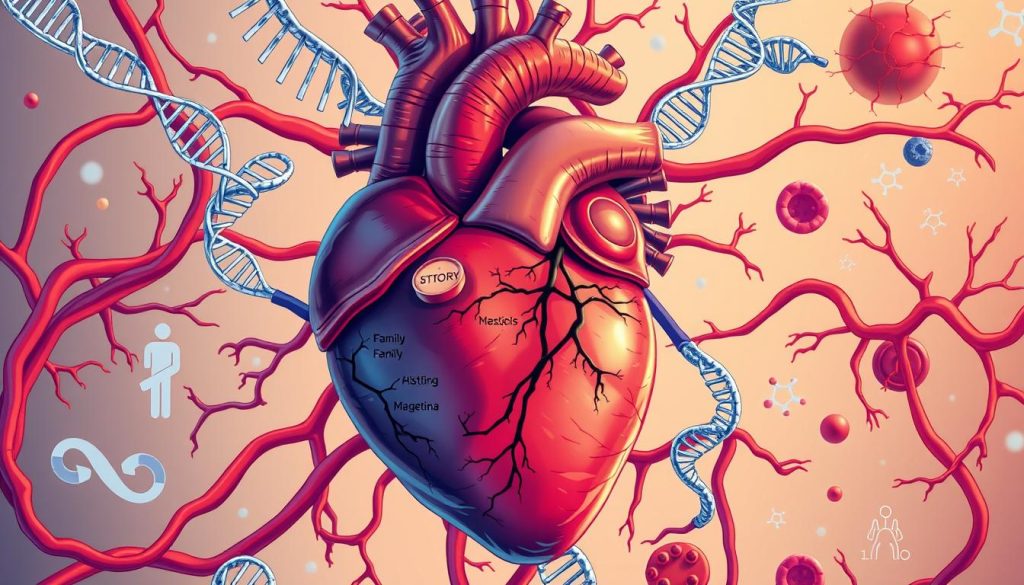
Genetic Testing and Prevention
Genetic tests can find genes linked to heart disease. Doctors can then plan how to prevent it. Early tests might mean making lifestyle changes or getting medical help sooner.
Family Health History Documentation
It’s key to keep a detailed family health history. This helps doctors see if you might be at risk. Try to include info on both your immediate and extended family.
| Family Member | Heart Condition | Age at Diagnosis |
|---|---|---|
| Parent | Coronary Artery Disease | 55 |
| Sibling | Hypertension | 45 |
| Grandparent | Atrial Fibrillation | 70 |
Knowing your genetic risk and family heart history can help you stay healthy. Regular check-ups and lifestyle changes can lower your heart disease risk.
High Blood Pressure as a Leading Risk Factor
High blood pressure, or hypertension, is a silent killer that affects millions of Americans. It’s a major risk factor for heart disease, often lurking without symptoms. When your blood pressure stays high over time, it can damage your heart and blood vessels.
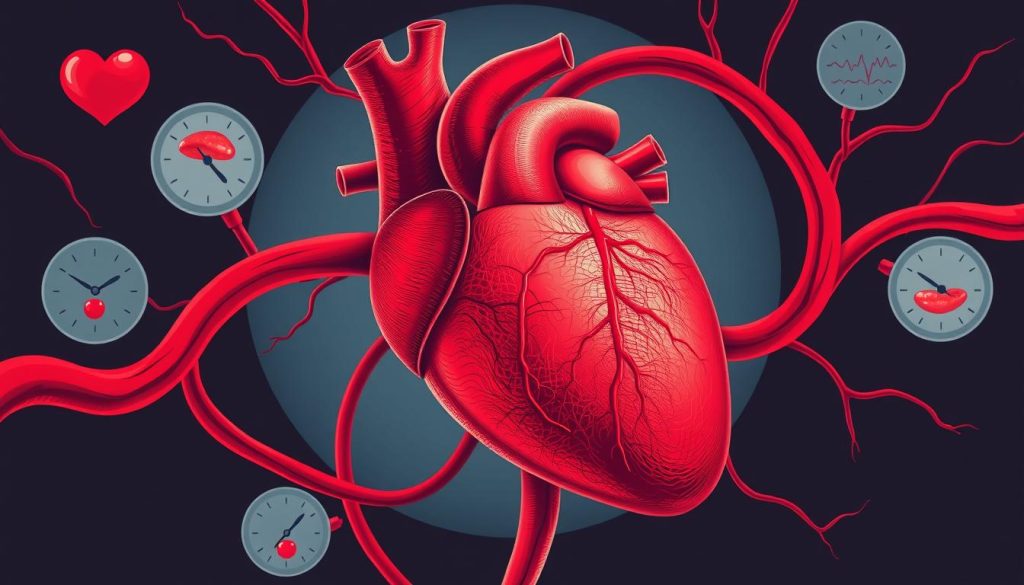
Hypertension forces your heart to work harder to pump blood. This extra strain can lead to heart failure, heart attacks, and strokes. The scary part? Many people don’t know they have high blood pressure until serious health problems arise.
The good news is that hypertension is manageable. Regular check-ups, a healthy diet, and exercise can help keep your blood pressure in check. Reducing salt intake, quitting smoking, and managing stress are also key steps in preventing heart disease.
“Controlling high blood pressure is like giving your heart a well-deserved vacation.”
Here are some quick facts about high blood pressure and heart disease:
- Nearly half of American adults have hypertension
- Only about 1 in 4 people with hypertension have it under control
- High blood pressure is responsible for about 50% of heart disease cases
Remember, knowing your numbers is the first step in fighting hypertension. Regular blood pressure checks can save your life and protect your heart health. Don’t let this silent threat sneak up on you!
Cholesterol Levels and Heart Health Connection
It’s important to know how cholesterol affects heart health. Cholesterol is a waxy substance in our blood. It’s vital for our body’s functions. But, an imbalance can cause serious health problems.
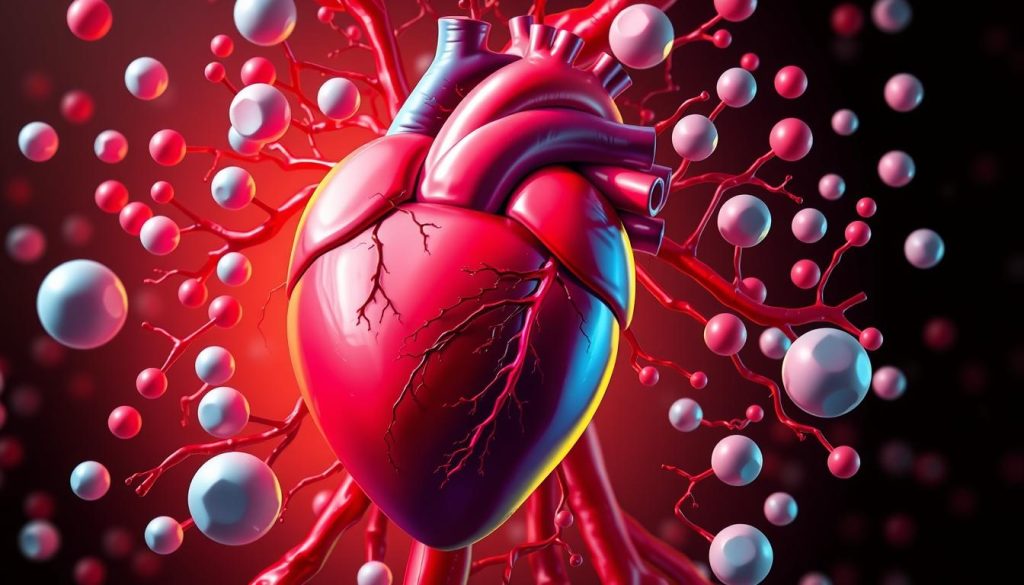
LDL vs HDL Cholesterol
Cholesterol isn’t all the same. Low-density lipoprotein (LDL) is called “bad” cholesterol. It can clog arteries, raising heart disease risk. On the other hand, high-density lipoprotein (HDL), or “good” cholesterol, helps clear out bad cholesterol.
Triglycerides and Heart Disease
Triglycerides are another blood fat that affects heart health. High triglycerides, along with high LDL or low HDL, can up heart disease risk. Regular blood tests help track these levels.
Natural Ways to Manage Cholesterol
Keeping cholesterol levels healthy doesn’t always mean medication. Simple lifestyle changes can help a lot:
- Eat a heart-healthy diet rich in fruits, vegetables, and whole grains
- Exercise regularly to boost HDL levels
- Quit smoking to improve overall heart health
- Maintain a healthy weight to reduce LDL cholesterol
By managing cholesterol levels, you can lower heart disease risk. Remember, early recognition of health issues is key to effective management and better outcomes.
Smoking and Tobacco Use Effects on Heart Health
Smoking and heart disease are closely linked. Tobacco use is a big risk for heart problems. Smoking’s effects on heart health are serious and can cause severe issues.

Smoking lets harmful chemicals into your blood. These chemicals damage your heart and blood vessels. This damage raises your risk of atherosclerosis, where plaque builds up in your arteries.
This buildup restricts blood flow to your heart and other organs. Tobacco use isn’t just a risk for smokers. Secondhand smoke can also harm the hearts of non-smokers. Quitting smoking can greatly lower your heart disease risk. Benefits start almost right away after your last cigarette.
“Quitting smoking is one of the best things you can do for your heart health. Within just one year of quitting, your risk of heart disease drops dramatically.”
To quit smoking and improve your heart health:
- Set a quit date and stick to it
- Use nicotine replacement therapy or medication as prescribed by your doctor
- Seek support from friends, family, or support groups
- Stay active and find healthy ways to manage stress
- Avoid triggers that make you want to smoke
Remember, it’s never too late to quit smoking and reduce your risk of heart disease. Your heart will thank you for making this life-changing decision.
Obesity and Its Impact on Cardiovascular Health
Obesity and heart disease are closely linked, posing significant risks to cardiovascular health. Excess weight strains the heart and blood vessels. This increases the likelihood of heart problems.
Body Mass Index and Heart Disease Risk
Body Mass Index (BMI) is a common measure used to assess weight status. A higher BMI often correlates with increased heart disease risk. People with a BMI of 30 or above face greater chances of developing cardiovascular issues.
| BMI Range | Weight Status | Heart Disease Risk |
|---|---|---|
| Below 18.5 | Underweight | Low |
| 18.5 – 24.9 | Normal | Average |
| 25.0 – 29.9 | Overweight | Increased |
| 30.0 and above | Obese | High |
Visceral Fat and Cardiovascular Problems
Visceral fat, which surrounds internal organs, is dangerous for heart health. It releases inflammatory substances that can damage blood vessels and increase the risk of heart disease. Reducing visceral fat is key to improving cardiovascular health.
Weight Management Strategies
Effective weight management for heart health involves diet and exercise. Eating a balanced diet rich in fruits, vegetables, and lean proteins helps maintain a healthy weight. Regular physical activity, such as brisk walking or swimming, strengthens the heart and aids in weight control.
“Losing just 5-10% of your body weight can significantly reduce your risk of heart disease and improve overall cardiovascular health.”
By adopting these strategies, individuals can take control of their weight and protect their heart health. This reduces the risk of obesity-related cardiovascular problems.
Diabetes and Heart Disease: Understanding the Connection
Diabetes and heart disease are closely linked. People with diabetes are at a higher risk for heart disease. High blood sugar can harm blood vessels and nerves that control the heart.
Heart disease is a big worry for diabetics. They are twice as likely to get heart disease as non-diabetics. This risk is due to high blood pressure, bad cholesterol, and obesity, common in diabetics.
To lower heart disease risk, managing diabetes well is key. This means:
- Keeping blood sugar levels healthy
- Controlling blood pressure
- Managing cholesterol levels
- Eating a heart-healthy diet
- Staying active
Regular health check-ups are vital. They help monitor diabetes and heart health. Catching and treating heart issues early can greatly improve outcomes for diabetics.
“Understanding the link between diabetes and heart disease empowers patients to take proactive steps in managing their health.”
By tackling diabetes cardiovascular risk factors, people can reduce heart disease chances. Education and lifestyle changes are key. They show the need for a complete approach to managing diabetes.
Physical Inactivity and Sedentary Lifestyle Consequences
A lack of exercise and a sedentary lifestyle are common today. Many spend hours sitting, which harms our health. Our bodies need movement to stay healthy.
Recommended Exercise Guidelines
Health experts suggest certain exercise guidelines. Adults should do at least 150 minutes of moderate activity or 75 minutes of vigorous activity weekly. Activities like brisk walking, swimming, or cycling are good.
Benefits of Regular Physical Activity
Regular exercise is great for the heart. It helps control weight, lowers blood pressure, and improves cholesterol. Exercise also boosts mood and energy.
| Activity | Calories Burned (30 min) | Heart Health Benefits |
|---|---|---|
| Brisk Walking | 170 | Lowers blood pressure, improves circulation |
| Swimming | 223 | Strengthens heart, increases lung capacity |
| Cycling | 298 | Boosts cardiovascular endurance, reduces stress |
Starting an Exercise Routine Safely
For beginners or those returning to exercise, start slow. Begin with short, easy sessions and gradually increase. Always check with a healthcare provider before starting, if you have health concerns.
Diet and Nutrition’s Role in Heart Disease Prevention
Your diet is key to a healthy heart. The foods you eat can either protect your heart or increase your risk of heart disease. Eating too much saturated fats, salt, and sugar can lead to serious heart problems.
Heart-Healthy Foods
Eating heart-friendly foods is important. Choose fruits, vegetables, whole grains, and lean proteins. Fish like salmon and mackerel are good for your heart because they have omega-3 fatty acids.
Nuts, seeds, and avocados are also good for your heart. They provide healthy fats that support heart health.
Foods to Avoid
Some foods are bad for your heart. Limit processed meats, fried foods, and sugary drinks. These foods often have unhealthy trans fats and added sugars that can raise bad cholesterol levels.
Meal Planning for Heart Health
Planning meals for heart health is easy. Add more colorful fruits and veggies to your meals. Choose whole grain breads and pastas instead of refined ones.
When cooking, use healthy oils like olive oil instead of butter. Making small changes in your diet can greatly improve your heart health over time.
FAQ
Q: What are the main causes of cardiovascular disease?
A: Heart disease is caused by many factors. High blood pressure and high cholesterol are big contributors. Smoking, obesity, and not being active also play a role. An unhealthy diet and diabetes are other risks. Genetic factors can also increase your risk.
Q: How does high blood pressure contribute to heart disease?
A: High blood pressure damages blood vessel linings. This damage makes it easier for plaque to build up. It also makes the heart work harder, which can weaken it.
Q: Can genetics increase my risk of heart disease?
A: Yes, your genes can affect your heart health. Some conditions are inherited. Knowing your family’s health history is important. It helps your doctor understand your risk.
Q: How does smoking affect cardiovascular health?
A: Smoking harms blood vessels and reduces oxygen in the blood. It raises blood pressure and heart rate. Smokers face a higher risk of heart attacks and strokes.
Q: What’s the connection between diabetes and heart disease?
A: Diabetes damages blood vessels and nerves that control the heart. High blood sugar levels lead to fatty deposits in blood vessels. People with diabetes are at a higher risk of heart disease.
Q: How much exercise is recommended for heart health?
A: Adults should do at least 150 minutes of moderate exercise weekly. This can be 30 minutes, five days a week. Muscle-strengthening activities are also recommended two days a week.
Q: What dietary changes can help prevent heart disease?
A: Eat lots of fruits, vegetables, whole grains, and lean proteins. Choose healthy fats like those in nuts and fish. Avoid saturated and trans fats, sodium, and added sugars. The Mediterranean and DASH diets are good for your heart.
Q: Can stress cause heart disease?
A: Stress itself doesn’t directly cause heart disease. But it can lead to behaviors that increase risk. Managing stress is key to heart health.














